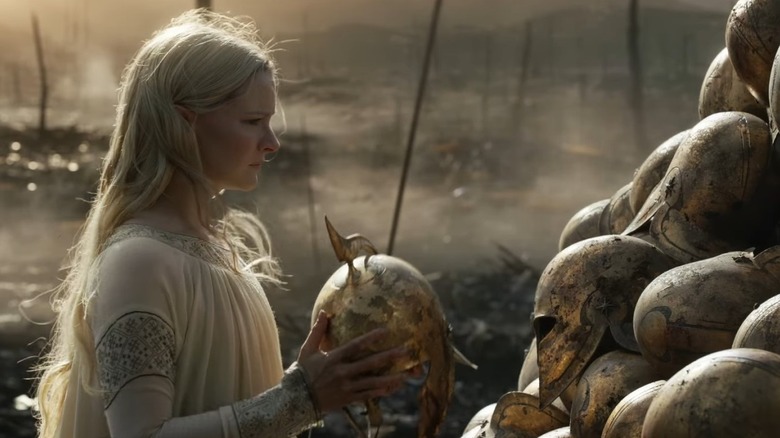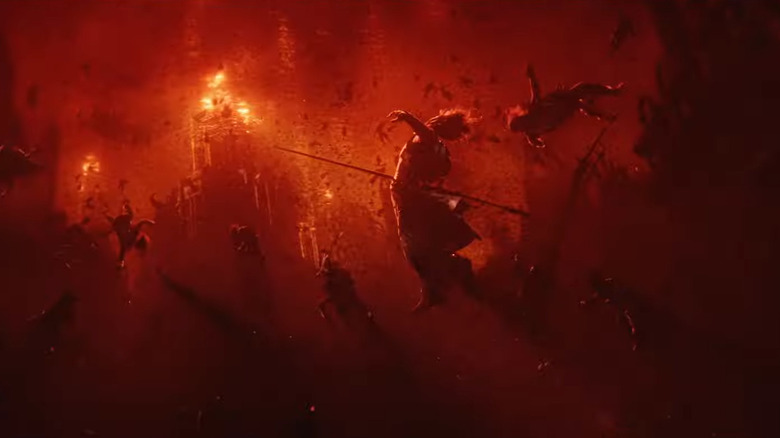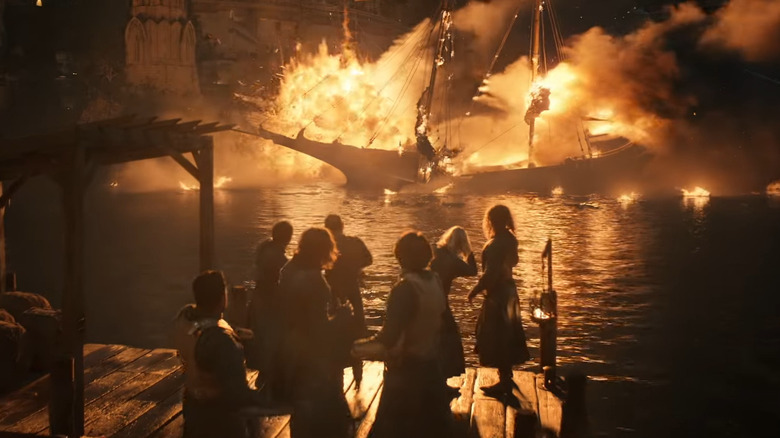The Latest Lord Of The Rings: The Rings Of Power Trailer Nails The Key To A Good Middle-Earth Adaptation
J. R. R. Tolkien's "The Lord of the Rings" is arguably the most influential fantasy story ever, inventing most of the tropes of the genre that have gone from innovative to cliché, and back to innovative several times over across the decades. When the live-action trilogy directed by Peter Jackson was released, it also changed the way we looked at both fantasy movies and blockbuster filmmaking in general.
This is to say, there is a lot riding on the "Lord of the Rings: The Rings of Power" TV series. Expectations are through the roof, given the ludicrously high production budget for the series, the poor reception to the "Hobbit" trilogy, and the rise of fantasy on TV since the release of "Game of Thrones." Adding to the many questions about the show is how exactly it will tell its story, since this is not exactly based on any one particular story, but shows many of the main events taking place during the Second Age of Middle-earth, leading to the creation of the titular rings that Sauron will one day use to take power and wage war against the free peoples of Middle-earth.
With a brand new trailer released at San Diego Comic-Con comes our best look at the series yet, from its lavish and grand production, its epic story scope, our first look at what looks like Sauron, and most importantly, how it nails the key to telling a good story set in Tolkien's Middle-earth: a sense of doom.
A false sense of hope
The trailer focuses on a young Galadriel talking about the end of a terrible war, and how she once thought there was a bright future of peace and prosperity ahead. Several characters are seen celebrating a new era of peace everlasting, with the Second Age supposedly being a new beginning.
But they were, all of them, deceived, for another evil creature was rising. The trailer quickly cuts away to flashes of incoming doom, with a sense of doom creeping across the land in the form of Sauron. This feels very close in tone to the "Lord of the Rings" movies and how they started with the very quaint and quiet town full of hobbits before quickly becoming an epic apocalyptic tale of the war to end all wars. This is straight out of Tolkien's writing.
The British author experienced the worst that humanity had to offer, having served in the First World War, and experienced the second before writing the trilogy that would make him immortal. Seeing the horrors of war deeply impacted Tolkien, his world views, and his writing. As a devout catholic, Tolkien firmly believed that human history was one of defeat, having lost its first test to resist the original sin, with everything after just going from bad to worst.
Indeed, he once wrote in a letter: "Actually I am a Christian, and indeed a Roman Catholic, so that I do not expect 'history' to be anything but a 'long defeat' — though it contains (and in a legend may contain more clearly and movingly) some samples or glimpses of final victory."
At the end lies victory
Tolkien imprinted that sentiment all over his writing, and while the films kind of skipped them, the books certainly didn't. Characters like Elrond, who has been around since the First Age, speak in mournful, nostalgic tones about how the evils of today pale in comparison to the evils of yore. The book makes it clear that the Sauron the fellowship is trying to prevent from coming into power is but a pale comparison to the Sauron that Elron and the Last Alliance, which paled in comparison to Morgoth in the First Age. The book doesn't necessarily say that things were better before, but they just keep getting worse and worst.
Speaking at a San Diego Comic-Con panel, co-showrunner Patrick McKay explained the main difference between the setting of this show and that of the movies:
"In the Third Age, Middle-earth is sort of post-apocalyptic. All these kingdoms have fallen. The elves are on their way out the door. But in the Second Age, Middle-earth is vibrant and filled with life."
This is the key to this adaptation. It is not imitating the look of the original movies, or its music, or its use of practical effects, let alone its budget. The key to making this story a good adaptation of Tolkien's world is recognizing and making sure the show evokes the idea that the world is but a pale echo of an older, better time, and we are slowly walking towards armageddon while knowing that at the very end lies victory.


